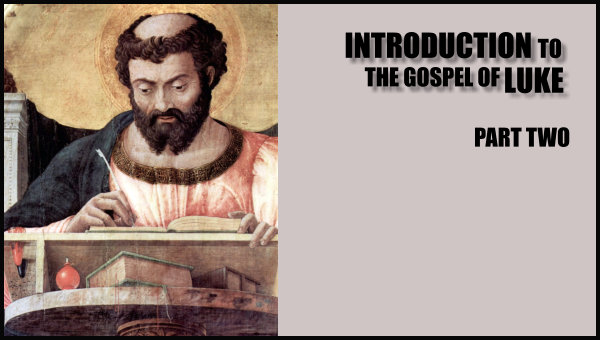By Tyson Thorne

Last time we left off with the angel Gabriel talking with Zechariah in the inner sanctum of the temple. Zechariah’s should have thought before he spoke, a situation I’m sure we’re all familiar with. He questioned the truth of Gabriel’s prophecy regarding he and his elderly, barren wife having a son. The result was the angel made Zechariah dumb until John’s birth. And this is where our story becomes rather humorous. When Zechariah left the temple area, much to the relief of all, he could not tell them what had transpired. This event inspired the world’s first game of charades.
After miming the events his fellow priests understood enough, Zechariah had a vision. At the end of his work he returned home to his wife where he undoubtedly revealed his belief in the angel’s message and set about having a son. While we do not know how much time had passed, Elizabeth indeed became pregnant. During the sixth month of her pregnancy Gabriel pops up again, this time in the outer village of Nazareth, and appears to young woman. The prophetic message is similar, but even more incredulous. While an elderly woman incapable of having a child becoming pregnant is remarkable enough, a young woman who had never been with a man is miraculous.
Mary’s response was far superior to Zechariah’s. Her question wasn’t one of disbelief, simply wondering of the mechanics of a fatherless pregnancy. Once explained she showed humility be desiring to be a part of God’s plan. Shortly thereafter she journeyed to Judah to stay with Elizabeth where more comedic circumstances ensued. While bandying about possible names for the child, Elizabeth informed the family he was to be named John. In true Jewish fashion there was much light-hearted argument and a dismissal of a name that had no connection to the family. Finally, someone thought to ask the father, and Zechariah grabbed a tablet to write what he could not speak: “His name is John.”
At that moment, in the presence of friends and family, Zechariah regained his ability to speak. While some may have been inclined to be angry with God for having shut him up for nearly a year, the priest instead praised God greatly. While the guests were amazed and even a little fearful at these events, the Holy Spirit came upon him and he gave a prophecy. Yet while everyone was wondering about what John would grow up to be, the prophecy starts out about Mary’s soon to be born child, Jesus. It isn’t until the end of the prophecy that it turns to John, the forerunner and path-maker of the savior of Israel.
The prophecy regarding Jesus should not be overlooked. For those who might question God’s goodness and concern for humanity this passage could prove most inspirational. God has come to “help” his people by sending a redeemer. What is interesting is the language used, it speaks of redemption in the past tense, as if it had already been accomplished. There is no stopping God’s will once events are set in motion, for Elohim has the power to see it through. This power is again referenced through the use of the phrase “horn of salvation”. This phrase is descriptive of the power of Messiah and his ability to secure and defend, much the way an animal uses its horns. The phrase is also used in Psalm 75 and 148 as well as Samuel 22. Phrase would have been immediately recognized by the Jewish audience to refer to Messiah.
The coming of Messiah is linked back to Genesis 12 and the Abrahamic covenant. This covenant guarantees the existence of Israel, God’s leadership and protection, and the eventual redemption of the world through God’s chosen people. A promise that would be fulfilled through Mary’s child. Yet before that fulfillment, another prophecy must come to pass. Zechariah now turns to his newborn child, “And you, child, will be called the prophet of the Most High.” He foretells of John’s ministry to lead people to repent and turn back to God, to make them ready to see the Messiah at the appointed time.
The prophecy ends with more insistence regarding God’s mercy and tenderness, provision and peace. That last item, peace, is yet to come. For Jesus brought division and conflict in the nation and peace is hardly a term as yet to be associated with Israel.
|
|
